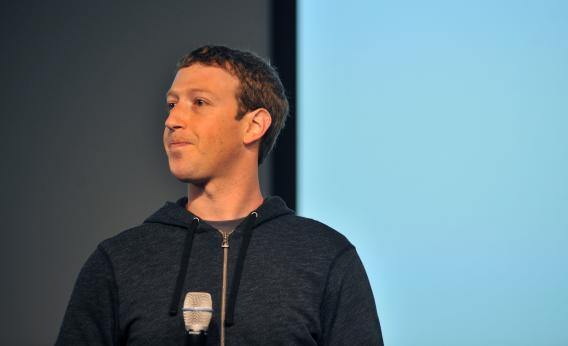Facebook is usually seen as more villain than hero when it comes to surveillance and privacy. But the social networking giant is attempting to shake off its Big Brother image.
In an announcement Wednesday, Facebook committed to expanding its human rights work—vowing to help expose excessive government snooping and censorship. The company said it was signing up to the Global Network Initiative, a Washington, D.C.-based organization that is dedicated to advancing freedom of expression and privacy rights, particularly focused on information technology companies that handle private data and communications. Other companies involved in the GNI include Google, Microsoft, and Yahoo, and they work alongside activists and academics.
By signing up to participate in the GNI, Facebook agrees to independent assessment on its adherence to a series of human rights principles and guidelines. The company said in a statement that it would, as part of its work with the GNI, help “shed a spotlight on government practices that restrict expression and seek over broad requests for user data,” and also detailed a few other steps it says it plans to take to further human rights, such as increasing funding for an awards program that has handed out funding for people with ideas to help counter and circumvent online surveillance and censorship.
In recent years, Facebook has been criticized on many occasions for its policies on data protection and privacy. (WikiLeaks founder Julian Assange branded it an “appalling spy machine” in 2011.) By joining the GNI, the California-based company may be attempting to change the perception that it is in cahoots with the government—but Zuckerberg and co. still have some convincing to do.
Unlike Google, Twitter, and most recently Microsoft, Facebook has failed to embrace the practice of releasing transparency reports that reveal the extent of government attempts to remove content from the Web or grab users’ private data. And that shows little sign of changing soon, despite Facebook’s new pledge to shed light on “overbroad requests for user data” as part of its work with the GNI. On Wednesday, while he was on a panel at an Internet freedom conference in Stockholm, Matt Perault, Facebook’s public policy manager, declined to commit to releasing transparency reports. He said only that it was an “ongoing conversation within the company” and questioned whether the reports were “the most useful way to highlight” censorship and surveillance. Eric King of rights group Privacy International responded by asking Perault what would be a better way to highlight these issues than though transparency reports. But Perault floundered—he didn’t have an answer.
